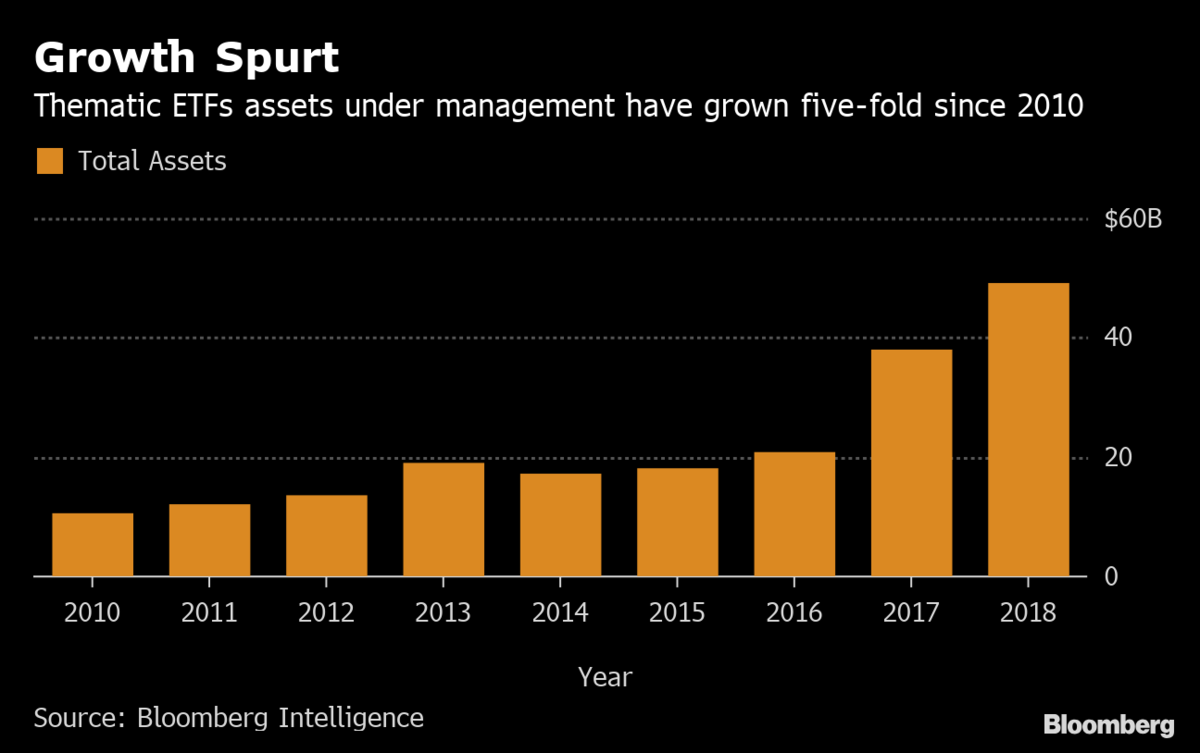Exchange-traded funds looking to tap some of the hottest investment trends are going undercover.
A growing number of thematic ETFs are changing their identities before they even start trading to conform to a decades-old rule that dictates what issuers can and can’t call their strategies. More than a third of such funds started last year tweaked their names during the regulator’s approval process, filings show; one fund that initially included blockchain in its name is now described as a “transformational data sharing” ETF.
It’s all part of the U.S. Securities and Exchange Commission’s attempt to get a handle on the rapid proliferation of funds offering investments in everything from 5G networks to electric cars and video games. More than 10 percent of new ETFs last year targeted a theme, and assets in these funds have nearly tripled between 2014 and 2018. That’s put the regulator on high alert.
“We get questions more than we used to where we have to be able to defend our name,” said J. Garrett Stevens, chief executive officer of Exchange Traded Concepts, which runs 26 funds, many of which track thematic indexes. “Now almost all names, they’ll come back and say ‘Can you justify, give us your explanation on why this name is OK?’”
Misleading Names
The extra scrutiny couldn’t have come at a worse time for issuers struggling to stand out amid more than 2,000 competing products. Thematic funds have become a much needed area of growth as the $3.9 trillion ETF market starts to show signs of stress, with catchy names seen as a crucial tool to grab attention and assets.
Issuers are prohibited from using “materially deceptive or misleading” names under the Investment Company Act of 1940. The SEC adopted Rule 35d-1 in 2001 -- known as the Names Rule -- to further define this, and require that funds ensure at least 80 percent of assets are in the type of investments suggested by their monikers.
While asset managers could opt to rename a fund for marketing reasons, publicly available letters show last year the SEC questioned several issuers that later made a tweak. At least four other providers had their names queried before ultimately keeping them, correspondence show. And even some broader funds that wanted thematic descriptions changed them after regulatory scrutiny.
So far the trend has continued into 2019. “Names have to match up to what the fund does,” SEC Commissioner Hester Peirce said on the sidelines of a digital assets talk last month. The watchdog can issue a stop order that prevents the fund from offering shares to investors, if an issuer shrugs off its concerns.
SEC Cracks Down On ETF Names That Could Be Misleading Investors
April 12, 2019
« Previous Article
| Next Article »
Login in order to post a comment








